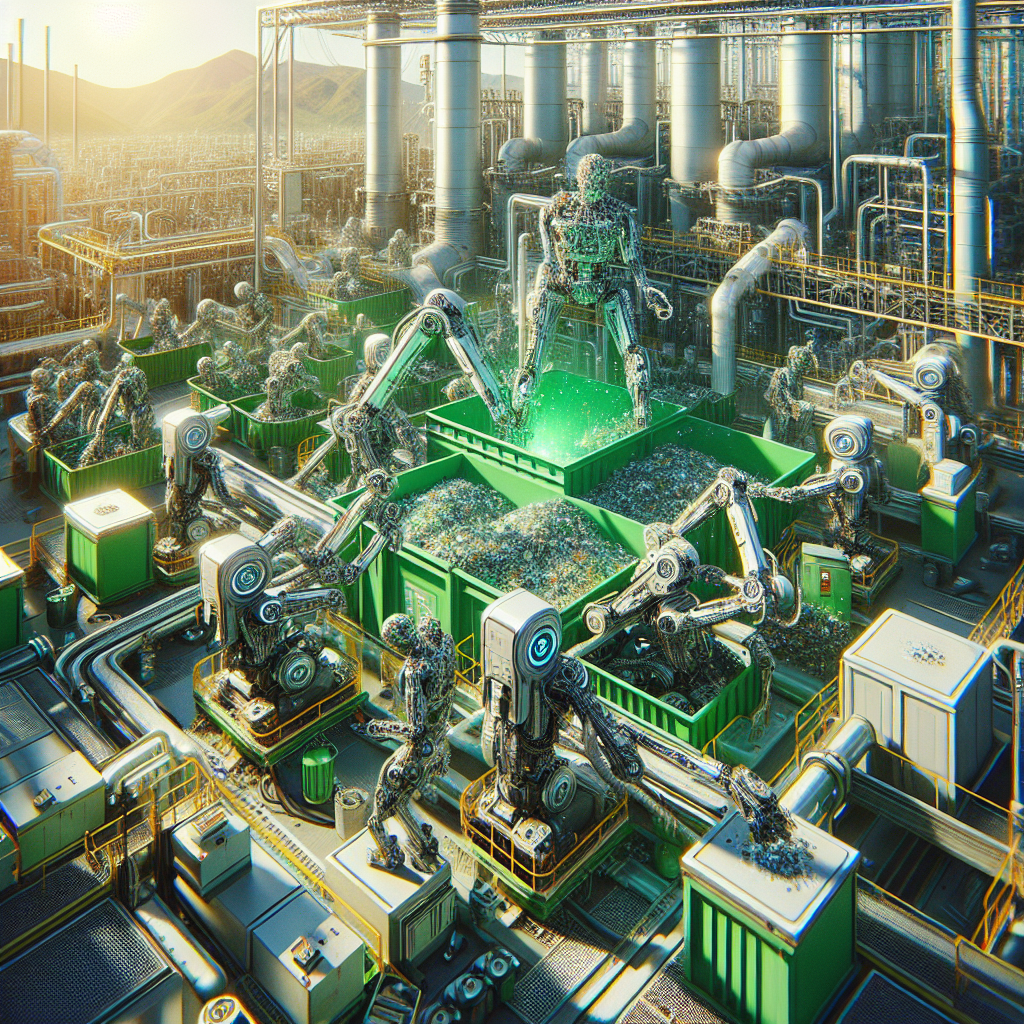Blog Ecobraz Eigre

Artificial Intelligence and recycling: the combination that can neutralize the impact of the electricity sector
The electricity sector plays a fundamental role in modern society, but also faces significant environmental challenges. The combination of artificial intelligence and recycling has emerged as an innovative solution to minimize these impacts, promoting efficiency and sustainability in the handling and reuse of materials.
Environmental challenges in the electricity sector
The electricity sector involves the generation, transmission and distribution of electricity. This production chain requires the extraction of natural resources, the use of materials such as copper and aluminum, as well as the generation of electronic waste and components which, when disposed of incorrectly, cause damage to the environment. Soil and water pollution and the emission of polluting gases are direct impacts linked to this sector.
Traditional recycling and its limitations
Although recycling is a consolidated practice, the traditional process suffers from limitations such as low efficiency in separating materials, high operating costs and difficulty in completely reusing electrical and electronic components. This leads to accumulated waste and the loss of valuable materials that could be returned to the production cycle.
The role of artificial intelligence in optimizing recycling
Artificial intelligence (AI) has proven to be a powerful tool for overcoming barriers in the recycling process. With advanced algorithms, sensors and computer vision systems, AI automates and improves the identification, sorting and separation of different types of electrical and electronic waste, increasing efficiency and reducing costs.
Practical applications of AI in recycling in the electrical sector
AI-equipped robots can identify and separate wires, cables and components with millimeter precision. In addition, intelligent systems can analyze the condition of materials, classifying them for reuse or proper disposal. This approach reduces the need for human intervention in hazardous environments and speeds up the recycling process.
Environmental and economic benefits
By integrating artificial intelligence with recycling, the electricity sector can significantly reduce the extraction of natural resources, reduce waste generation and avoid serious environmental impacts. Economically, this combination reduces operating costs and creates opportunities for the circular economy, promoting sustainability and innovation.
Future prospects and technological advances
With the advancement of AI, it is expected that even more sophisticated systems will emerge capable of dealing with the complex and varied materials present in the electricity sector. Integration with technologies such as the Internet of Things (IoT) and Big Data could optimize the entire recycling chain, making the process smarter, faster and more efficient.
Conclusion
The union of artificial intelligence with recycling is a promising strategy for neutralizing the environmental impact of the electricity sector. By increasing efficiency in the recovery and reuse of materials, this combination contributes to a more sustainable future, in line with environmental demands and technological innovation.

Deixe um comentário
O seu endereço de e-mail não será publicado. Campos obrigatórios são marcados com *